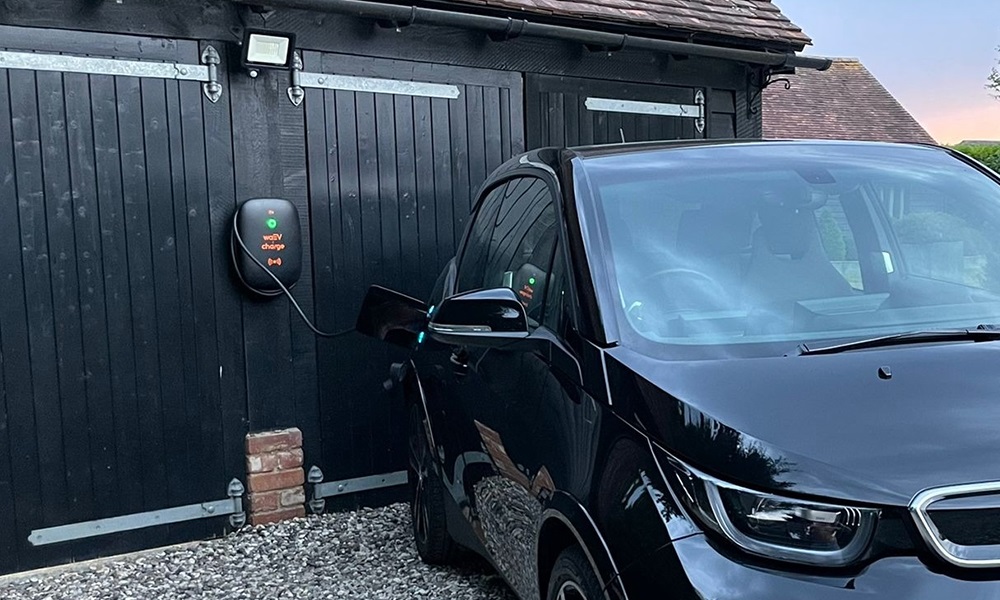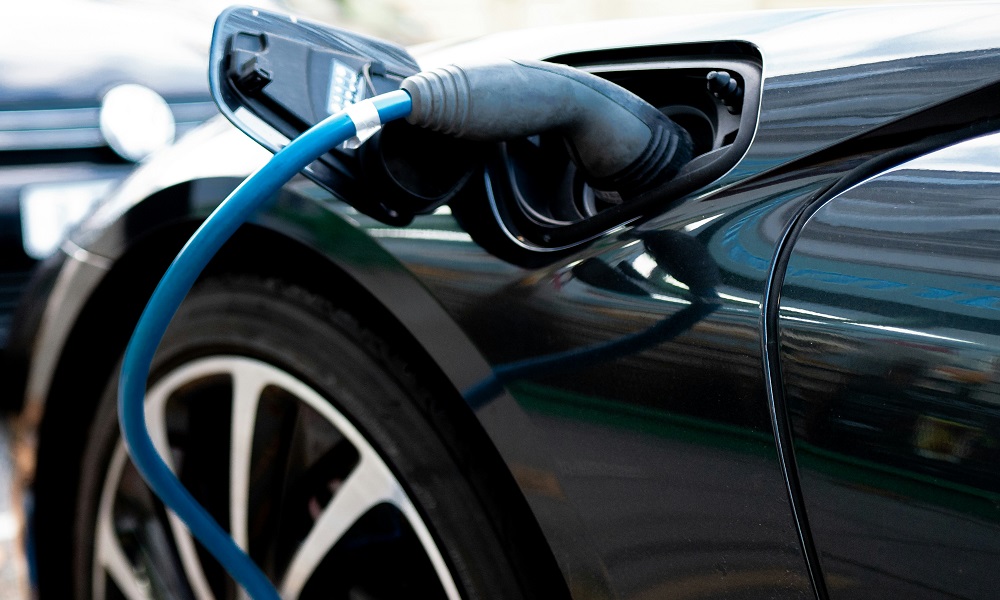
Choosing the suitable electric car charger is a significant decision for EV owners, and understanding the differences between 3-phase and single-phase charging is crucial. This comprehensive guide will explore the benefits of 3-phase charging, the distinctions between 3-phase and single-phase electric car chargers, the speed comparison, and how to make an informed choice based on your specific needs.
Understanding the Benefits of 3-Phase Charging
3 phase charging offers several advantages for electric vehicle owners:
Faster Charging: One of the key benefits is faster charging times. 3 phase electric car chargers can deliver higher power levels, resulting in quicker charging sessions than single-phase alternatives.
Efficiency: 3 phase systems are generally more efficient in distributing power, ensuring a consistent and reliable charging experience.
Suitability for Commercial Settings: 3 phase charging is commonly used in commercial and industrial settings, making it compatible with high-power charging stations in public places and workplace charging infrastructure.
How Does a 3-Phase Electric Car Charger Differ from a Single-Phase?
A 3 phase electric car charger utilizes three alternating currents, providing a more balanced and efficient power distribution compared to the single alternating current used by a single-phase charger. This difference in the number of phases impacts the charging speed and efficiency of the charging process. Here are the key distinctions:
1.Electrical Supply
• Single-Phase Charger: Single-phase chargers operate on a single alternating current (AC) phase, the standard electrical supply for most residential properties. The voltage alternates between positive and negative in a single waveform.
• 3-Phase Charger: 3-phase chargers operate on three alternating current phases. The voltage across each phase is offset by 120 degrees, resulting in a more continuous and balanced power supply.
2.Power Output
• Single-Phase Charger: Single-Phase Charger: Typically provides lower power compared to 3-phase chargers, making it suitable for residential or light commercial use.
• 3-Phase Charger: Can deliver higher power levels, enabling faster charging. This makes 3-phase chargers more suitable for commercial and industrial applications where faster charging is required.
3.Charging Speed
• Single-Phase Charger: Charging speed is generally slower with single-phase chargers due to the lower power output.
• 3-Phase Charger: 3-phase chargers enable faster-charging speeds, making them a preferred choice for users seeking quicker recharge.
4.Availability
• Single-Phase Charger: Single-phase power is the standard electrical supply for most residential properties, making single-phase chargers widely available and easier to install.
• 3-Phase Charger: Not all residential locations have access to 3-phase power. The availability of 3-phase power can vary by region, and installation may require additional considerations and costs.
5.Use Cases
• Single-Phase Charger: Suitable for charging low to mid-range electric vehicles and is commonly found in residential settings.
• 3-Phase Charger: Preferred for high-performance electric vehicles, EVs with larger battery capacities, or situations where faster charging is a priority.
When choosing between a 3-phase and a single-phase electric car charger, it's essential to consider factors such as your home's electrical infrastructure, the power requirements of your electric vehicle, and the availability of 3-phase power in your area. Consulting with an electrician or charging station installer can also help determine the most suitable charging solution based on your specific needs and circumstances.
| Feature | Single-Phase Charger | 3-Phase Charger |
| Electrical Supply | Single-phase | 3-phase |
| Power Output | Lower | Higher |
| Charging Speed | Slower | Faster |
| Availability | Widely available | Limited access |
| Use Cases | Low to mid-range EVs | High-performance, larger batteries |
Is a 3-Phase Electric Car Charger Faster than a Single-Phase Charger?
Yes, a 3 phase electric car charger is generally faster than a single-phase charger. Higher power levels allow quicker charging sessions, reducing the time required to replenish the electric vehicle's battery. Here are the main factors contributing to the faster charging of 3-phase chargers:
• Higher Power Output: 3-phase chargers can provide a higher power output than single-phase chargers. The power is distributed across three AC phases, allowing for more efficient and faster charging.
• Faster Charging Speeds: The increased power output translates to faster charging speeds for electric vehicles. This is particularly advantageous for EV owners with high-capacity batteries or those looking for quicker recharge.
• Suitability for High-Performance EVs: High-performance electric vehicles and those with larger battery capacities often benefit from 3-phase charging to maximize charging speed and efficiency.
It's important to note that the actual charging speed depends on the electric vehicle's onboard charger and its compatibility with the charger's power output. Some electric cars may need to be equipped to handle the maximum power output of a 3-phase charger, and in such cases, the charging speed will be limited by the vehicle's capabilities.
Before choosing a charging solution, it's recommended to check your electric vehicle's specifications and charging capabilities. Additionally, consider the availability of 3-phase power at your residential location, as not all homes have access to this type of electrical supply. If 3-phase power is not readily available, a single-phase charger may still offer a suitable and practical solution for residential EV charging.

Photo by the blowup on Unsplash
How to Choose Between 3-Phase and Single-Phase Electric Car Chargers
When selecting between a 3 phase and a single-phase electric car charger, consider the following factors:
Charging Speed Requirements: If fast charging is a priority and your electric vehicle supports higher charging speeds, a 3-phase charger may be the better choice.
Residential vs. Commercial Use: Single-phase chargers are more common in residential settings, while three-phase chargers are common in commercial and industrial locations. Therefore, before purchasing an electric vehicle charger, please choose single-phase or three-phase according to your application scenario.
Electric Vehicle Compatibility: Ensure your electric vehicle is compatible with the charger type. Some electric cars may only support single-phase charging.
Which Electric Car Charger Type is Suitable for Residential Use: 3 Phase or Single Phase?
For residential use, single-phase electric car chargers are more common and practical. Residential electrical systems are typically configured for single-phase power, making installing a single-phase charger at home more accessible and cost-effective.
• EV Specifications:
Check your electric vehicle's specifications and recommendations for charging. Some EVs are designed to work efficiently with single-phase chargers, while others may benefit from the higher power output of 3-phase chargers.
• Power Supply Availability:
Confirm whether your residential property can access 3-phase power. If not, a single-phase charger is the only practical option.
• Installation Costs:
Installing a 3-phase charger may involve additional costs if your home still needs a 3-phase power supply. Single-phase chargers are generally easier and less expensive to install.
• Future Considerations:
Consider your future EV charging needs. If you upgrade to a higher-capacity electric vehicle with a larger battery, a 3-phase charger may provide a more future-proof solution.
Conclusion
Choosing between a 3-phase and single-phase electric car charger depends on your requirements and charging environment. If you prioritize faster charging and have access to a 3-phase power supply, a 3-phase charger may be the ideal choice.
However, a single-phase charger is more suitable and widely available for most residential users. Assess your charging needs, consider the compatibility with your electric vehicle, and make an informed decision to enhance your overall electric vehicle charging experience.
Post time: Mar-06-2024
